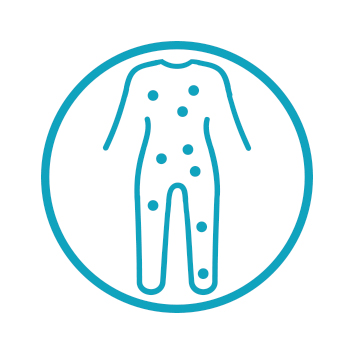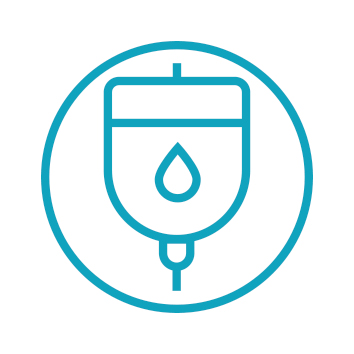What is Crohn’s disease?
Crohn’s disease is an autoimmune disease that affects the digestive tract and involves any region of the gastrointestinal tract that goes from the mouth to the anus. Like any autoimmune disease, an attack occurs from the patient’s immune system to the intestinal mucosa, resulting in an inflammation that causes abdominal pain.
It is an idiopathic disease, i.e. one of unknown cause. But with a very clear symptom: patients with Crohn’s disease go to the bathroom many times a day, a minimum of 3, and up to 10, in the acute phase. The disease presents outbreaks of greater incidence, especially in spring and autumn.
What do we do in Biosalud?
At Biosalud Day Hospital, after making a causal diagnosis and ascertaining the degree of affectation and aggression of the immune system, we will establish a personalized treatment protocol for each patient with Crohn’s disease.
Do you think you may have Crohn’s disease?
If you have any of the following symptoms, and especially if they persist for more than two weeks or for a longer period, consult Biosalud Day Hospital: intestinal inflammation and pain, use of the toilet from 3 to 10 times a day and pasty or liquid faeces.
If you want to request an appointment, please, phone us or fill the form and we will get in touch
Symptoms of Crohn’s disease

Patients with Crohn’s disease have inflammation and abdominal pain. They often need the toilet from 3 to 10 times a day, in the acute phase. The consistency of the faeces is pasty or liquid (usually accompanied by mycosis, an intestinal candidiasis). Obstruction of the intestine, sores and ulcers in the affected area or surrounding tissues, nutritional deficiencies, anemia, arthritis may also occur.
Other symptoms that may occur are obstruction of the intestine; sores and ulcers in the affected area or surrounding tissues, such as the bladder; tunnels around the anus and rectum, called fistulas; nutritional deficiencies; anemia; arthritis; skin problems; kidney stones, gallstones, or other diseases of the liver and biliary system.
Diagnosis of Behçet’s disease

In our biological medicine clinic, we begin by addressing a causal diagnosis. It is necessary to know why it affects the patient, what genetic load and the degree of affectation and aggression of the immune system. Once all this has been established, an assessment is carried out which results in a treatment protocol.
Treatment of Crohn’s disease

Depending on the diagnosis, a personalised treatment is prescribed. Our first objective is to reduce the number of bowel movements, remove the pain and compact the faeces to normalize the alteration of the intestinal flora that causes the disease. We will have to replenish the flora and eliminate associated intestinal infections (which can be several: candidiasis, geoticum …). It is also necessary to make a regulation of the immune system, which is the key to stop the process and especially to not produce alterations in other regions of the body that involve the maintenance of the autoimmune process.

